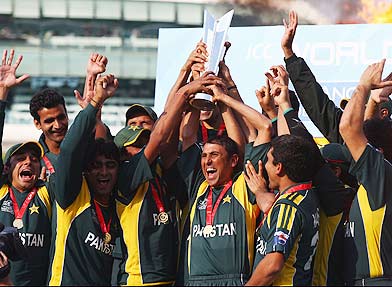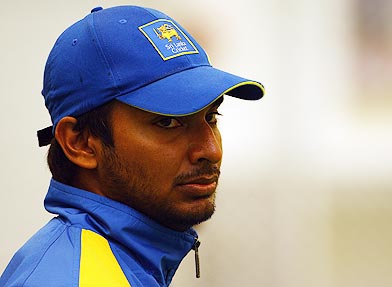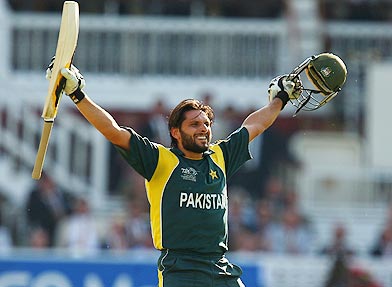Twenty20 triumphs on longest day
Pakistan, that strange, sad nation that never seems to deliver good news, earned the right on Sunday to a raucously united celebration for the first time in 17 years.
On a midsummer afternoon in London, the national cricket team won the World Twenty20 Cup, beating Sri Lanka before a packed house at Lord's by eight wickets with eight balls to spare.
It is a seemingly immutable Pakistani tradition that its cricketers should be either appalling or brilliant, never messing about in between.
In this fortnight-long tournament, they have given a vivid demonstration of this - losing abysmally in a qualifier to England, who themselves had lost to the part-timers from Holland.
This phenomenon was embodied by their all-rounder Shahid Afridi, who until Friday had forgotten how to hit the ball and then played two blazing match-winning innings to take Pakistan to the trophy, first over the favourites South Africa and then Sri Lanka.

There was excitement, all right but not much tension. After scrambling the winning run, he splayed his arms and legs in a victory gesture of raw exuberance not often seen at Lord's. Most of the team then faced east, knelt and praised Allah.
Their win illustrated the point that the art of winning World Cups - in football, rugby, cricket or whatever - is like winning at Ascot. The horse that storms to the front early on is rarely there at the end.
Sri Lanka, unbeaten before the final, ran out of puff: Tillakaratne Dilshan, the inventive opening bat who was named man of the tournament, was out for a fifth-ball duck and from then on they struggled, collapsing to 70 for six before the captain, Kumar Sangakkara, led a partial recovery.
For Pakistan, Sri Lanka were just the fall-guys. They always have to beat their own demons to prevail, which they have done only once before in a sporting event on this scale - the 1992 World Cup.
But above all, they have to do better than India, winners of the first Twenty20 final in 2007 but also-rans this time. Most of their supporters' banners made the point: "Are you watching, India?" (Knowing Indian cricket fans, almost certainly not. They would rather watch the test card than a Pakistan win.)

On the longest day of the year, the shortest form of cricket should have produced a great finale to end a tournament that, after a terrible opening ceremony, turned into a much-admired success.
In fact, it was a double anti-climax. The women's final, served as an hors d'oeuvre, was even more one-sided: England won by six wickets after bowling New Zealand out for 85.
England are unquestionably the best in the world at women's cricket. There may be another sport where this supremacy is true, though the list is not a long one. And the decision to play the two competitions together has raised the status of the women's game.
Indeed, the Twenty20 format works well for them, bringing out their skills in a way that longer games do not.
For the top male cricketers, a 240-ball match is an entertainment rather than a genuine examination of their cricketing merits. This event has again proved popular, as it did on its debut in South Africa two years ago. But cricket administrators are bound to wreck a good idea by overkill: it's an addiction with them. There are already signs that the public's appetite is being tested. And it is best not to exaggerate its success. In Britain, Sky has claimed its best viewing figures since it acquired a monopoly of live cricket on British television four years ago. But the base figure was a low one and this Twenty20 event has come nowhere near matching the 2005 Ashes as the focal point of national conversation. You only get that from being on the free-to-air channels.

Not today.
By Matthew Engel











0 comments